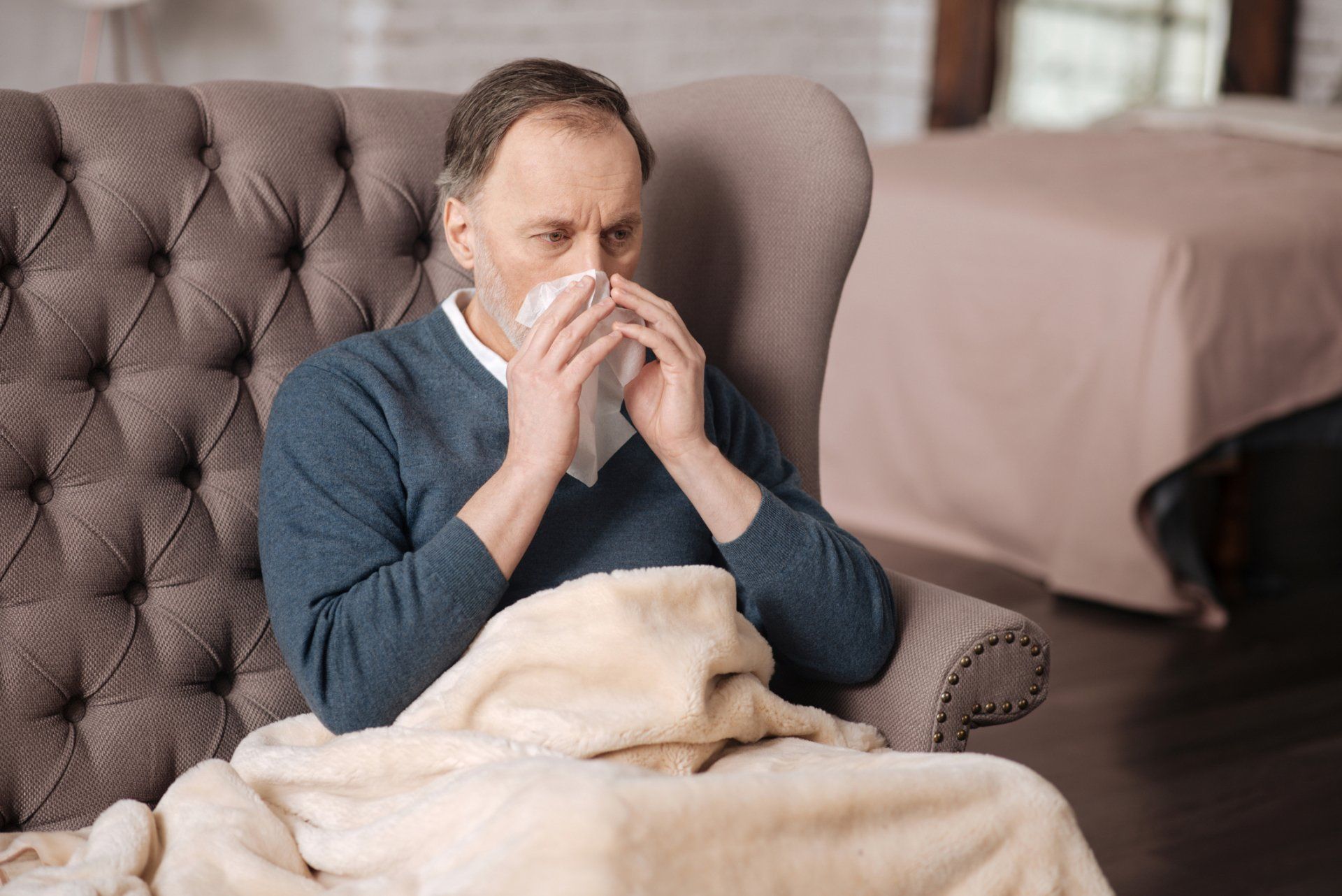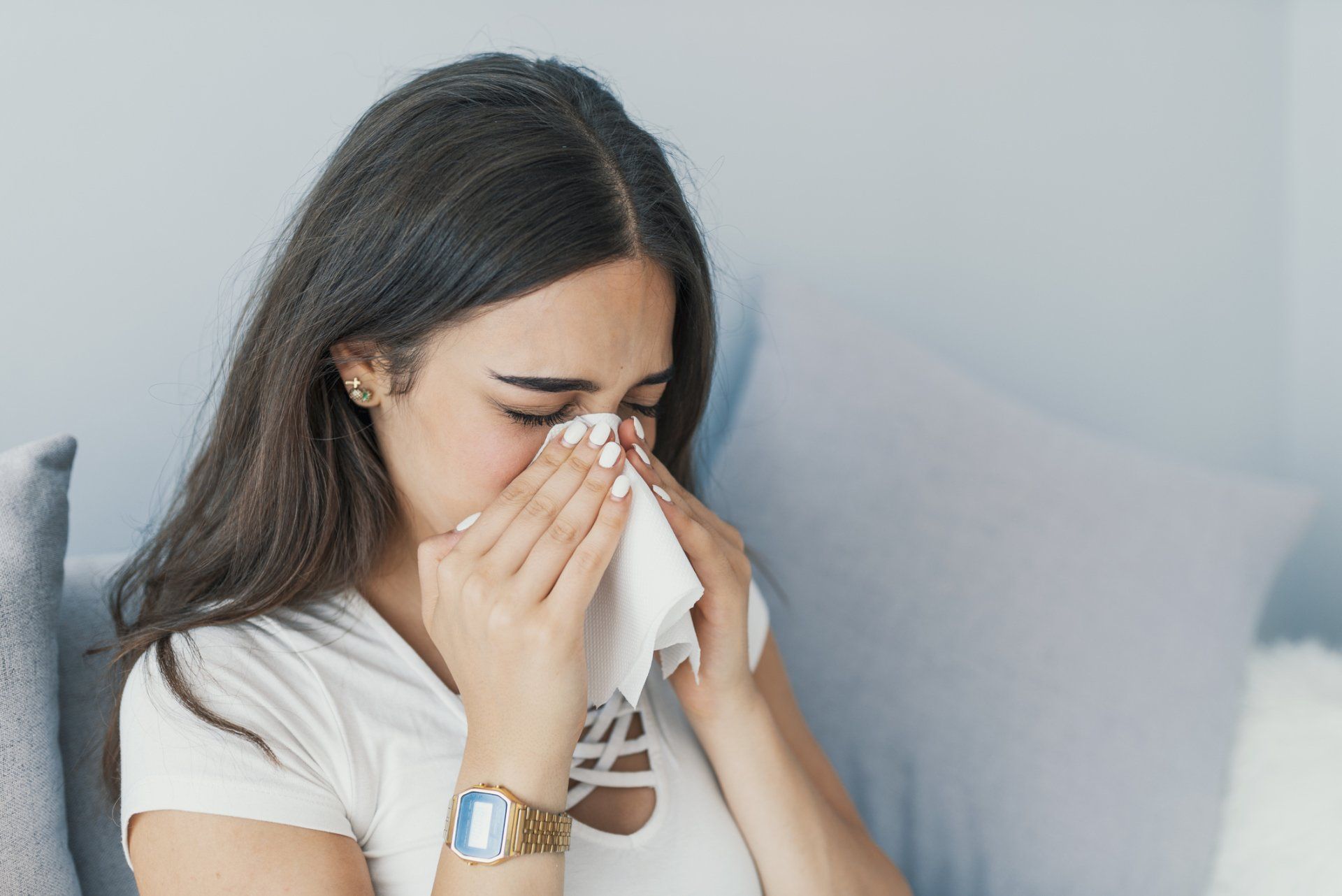Nearly 25 million Americans have asthma, according to the U.S. Centers for Disease Control and Prevention (CDC). This lung condition can make breathing a challenge and cause coughing or wheezing. While scientists haven't found a definitive cause behind asthma, some environmental issues can prompt attacks. If you or a loved one has asthma, take a look at some of the most common asthma triggers.
Heavy, hot air makes breathing difficult for almost everyone - especially if you have asthma. The rise in body temperature that high heat levels can cause often leads to excessive sweating. The more you sweat, the more water you lose. Dehydration can result in rapid or labored breathing, triggering an asthma attack.
Along with heat-related water loss, sudden changes in air temperature can put stress on the lungs. Moving from a chilly indoor environment (when the air conditioning is on) to a heated outdoor one can also set-off an attack.
On hot days, asthmatics should remain indoors (somewhere that is cool) as much as possible. If you have to go outside, take all required medications and keep yourself hydrated by drinking water. Avoid soda and caffeinated beverages. Caffeine acts as a diuretic, leaving you even more dehydrated than you were before drinking.
Extreme heat isn't always to blame for temperature-related asthma attacks or increased symptoms. Cold is also a trigger for some asthmatics. The cold air can increase mucous production and leave your airways feeling dry. This can worsen symptoms, making you cough, wheeze, or have trouble catching your breath.
Along with taking all prescribed medications, avoid extreme cold, drink plenty of water to thin mucous secretions, and cover your mouth and nose with a zippered coat or a scarf during outdoor activity.
Car exhaust, manufacturing byproducts, and other air contaminants can create a source of strife for many asthmatics. Decades worth of research supports the theory that human-created air pollution worsens asthma symptoms. Pollution-induced symptoms may include greater difficulty breathing, coughing, discomfort, or a burning sensation in the lungs, according to the Environmental protection Agency (EPA). This is a different type of trigger than indoor air quality issues, such as dust mites or pet dander.
The EPA notes that the two top pollutants affecting asthmatics are ozone ad particle pollution. Ozone pollution, which is found in smog, is at its worst during the heat of the summer or during any excessively hot day, regardless of the season. Particle pollution is typically highest during calm weather, near busy roads, near factories and in places that are near to fires.
While completely avoiding pollution isn't always possible, the asthmatic can reduce the amount of time they spend outdoors during peak ozone or particle pollution hours and weather. You should also keep your windows closed when driving in traffic or near factories that emit smoke or other airborne discharge.
Not all asthma triggers come from outside of your body. Stress and powerful emotions are internal factors that may set-off an attack. Increased anxiety, panic, and other strong feelings can result in shortness of breath, worsening your symptoms.
Unlike hot days or air pollution, you can't always stay away from stress. If your stress level is causing your medical condition to get progressively worse or you're having more asthma attacks, a therapist can help to reduce the effects of the emotional or psychological issues. In some serious cases, anxiety may require a combination of medication and therapy.
You can also reduce the likelihood of developing stress-related asthma attacks by practicing meditation or by learning relaxation exercises. Some types of physical activity, such as yoga, can also reduce psychological stressors. Always consult your doctor before starting a new exercise or activity routine.











